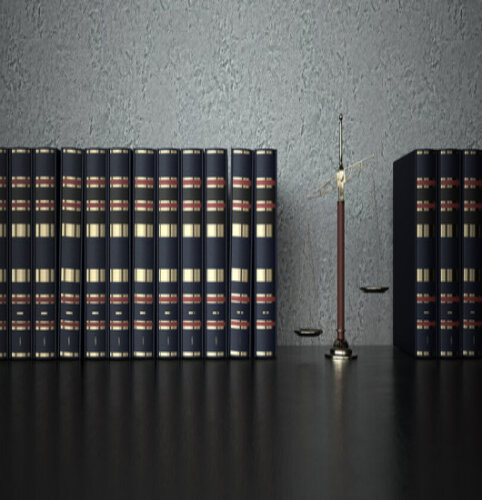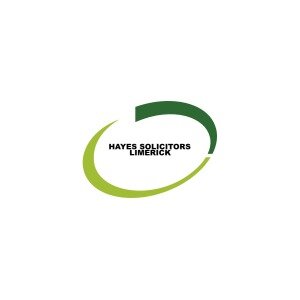Best Pension Lawyers in Ireland
Share your needs with us, get contacted by law firms.
Free. Takes 2 min.
Or refine your search by selecting a city:
List of the best lawyers in Ireland
About Pension Law in Ireland
Pension law in Ireland is a complex area that involves numerous rules and regulations designed to protect the retirement income of individuals. The system is primarily governed by the Pensions Act, 1990, which sets out the standards and requirements for occupational pension schemes, personal retirement savings accounts (PRSAs), and other retirement-related plans. Ireland's pension framework is designed to facilitate the financial security of individuals during their retirement years and ensure that employers and trustees manage pension funds responsibly.
Why You May Need a Lawyer
There are various common situations where you might need legal assistance in relation to your pension in Ireland:
- Pension Disputes: Disagreements may arise over the calculation of pension benefits, entitlement issues, or how pension funds are managed.
- Divorce or Separation: The division of pension assets can be a complicated issue during marital dissolution, requiring specialist advice.
- Beneficiary Designations: Understanding how to correctly designate beneficiaries and the consequences of changes can require legal guidance.
- Pension Transfers: Transferring benefits from one scheme to another involves complex regulations and potential implications that a lawyer can help navigate.
- Closure or Modification of Pension Schemes: If an employer intends to close or alter a pension scheme, legal advice can help understand the implications and rights.
Local Laws Overview
Pension laws in Ireland are primarily governed by the Pensions Act, 1990, as amended. Here are some key aspects:
- Types of Pensions: Include occupational pensions, PRSAs, and state benefits.
- Regulation: The Pensions Authority oversees compliance with pension regulations, ensuring schemes operate lawfully and transparently.
- Minimum Funding Standard: Occupational pension schemes must meet certain funding requirements to ensure they can meet future commitments.
- Tax Treatment: Contributions to pension funds often have various tax implications or benefits that individuals and employers should understand.
- Retirement Age: The statutory retirement age is 66, moving to 67 by 2028, but individuals can generally take benefits from age 50, subject to scheme rules.
Frequently Asked Questions
What is the State Pension (Contributory) in Ireland?
The State Pension (Contributory) is a payment available to individuals 66 years of age who have paid sufficient social insurance contributions (PRSI) over their working life.
Can I access my occupational pension before retirement age?
Typically, you can access benefits from age 50, subject to the rules of the specific scheme and potential tax implications.
What are PRSAs?
PRSAs are flexible, portable pensions available to all earners, which can be taken out regardless of employment status, designed to supplement state pension income.
How are pension funds protected by law?
Pensions are protected by the Pensions Authority, which ensures schemes are compliant with legal obligations and have adequate funds to meet their future commitments.
What should I do if my employer is not complying with pension regulations?
Contact the Pensions Authority to report any non-compliance by your employer concerning pension obligations.
How is the division of pension assets handled during divorce?
Division may involve a Pension Adjustment Order, which divides the pension benefits between divorcing spouses as part of a financial settlement.
Are pension contributions tax deductible?
Yes, personal contributions to approved pension schemes may attract tax relief at an individual's marginal rate of income tax, within certain limits.
What happens to my pension if I change jobs?
You may have options to leave the benefits in your previous employer's scheme, transfer them to a new employer's scheme, or move them into a PRSA.
Can beneficiaries be changed on a pension plan?
Yes, most pension arrangements allow you to nominate or change designated beneficiaries, which is advisable to do whenever personal circumstances change.
What is the Pension Levy?
The Pension Levy was a charge introduced in 2011 to fund job creation initiatives; however, it ceased in 2015.
Additional Resources
For those seeking further information or help, consider reaching out to the following resources:
- The Pensions Authority: Provides oversight and guidance on pensions in Ireland.
- Citizens Information: Offers comprehensive information about the pension system and your rights.
- Department of Social Protection: Responsible for state pensions and social welfare services.
- The Law Society of Ireland: Can assist in finding a solicitor specializing in pension law.
Next Steps
If you need legal assistance regarding your pension:
- Gather Relevant Documentation: Collect all related documents, including pension statements, employment contracts, and correspondence.
- Identify Your Issue: Clearly define the pension-related issue you are facing to make discussions with a solicitor more efficient.
- Consult a Legal Professional: Contact a solicitor who specializes in pensions to gain specific advice relevant to your situation.
- Contact the Pensions Authority: For issues regarding compliance and governance of occupational pension schemes.
- Stay Informed: Regularly check for updates on pension regulations that may affect your circumstances.
Lawzana helps you find the best lawyers and law firms in Ireland through a curated and pre-screened list of qualified legal professionals. Our platform offers rankings and detailed profiles of attorneys and law firms, allowing you to compare based on practice areas, including Pension, experience, and client feedback.
Each profile includes a description of the firm's areas of practice, client reviews, team members and partners, year of establishment, spoken languages, office locations, contact information, social media presence, and any published articles or resources. Most firms on our platform speak English and are experienced in both local and international legal matters.
Get a quote from top-rated law firms in Ireland — quickly, securely, and without unnecessary hassle.
Disclaimer:
The information provided on this page is for general informational purposes only and does not constitute legal advice. While we strive to ensure the accuracy and relevance of the content, legal information may change over time, and interpretations of the law can vary. You should always consult with a qualified legal professional for advice specific to your situation.
We disclaim all liability for actions taken or not taken based on the content of this page. If you believe any information is incorrect or outdated, please contact us, and we will review and update it where appropriate.
Browse pension law firms by city in Ireland
Refine your search by selecting a city.
















